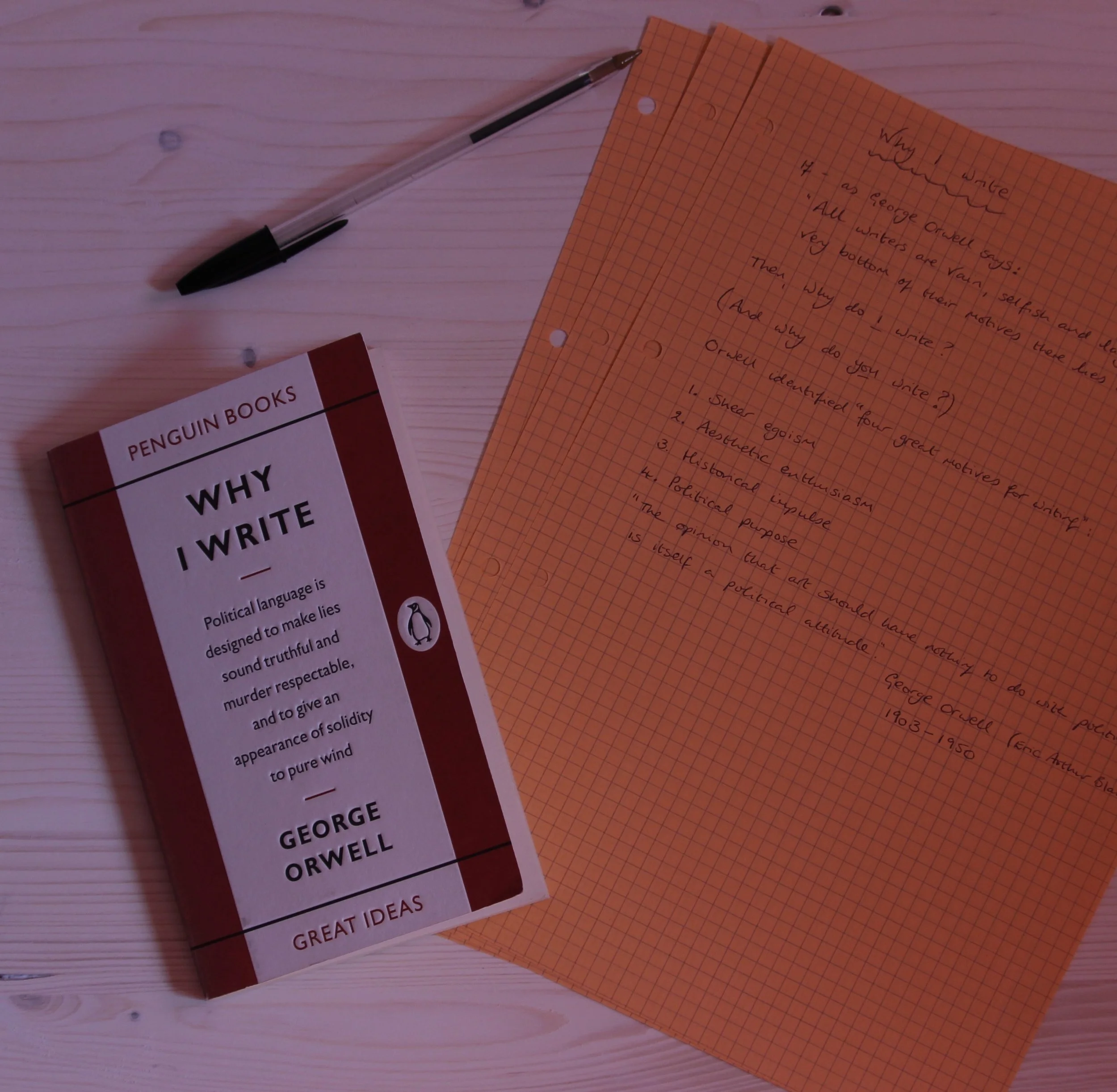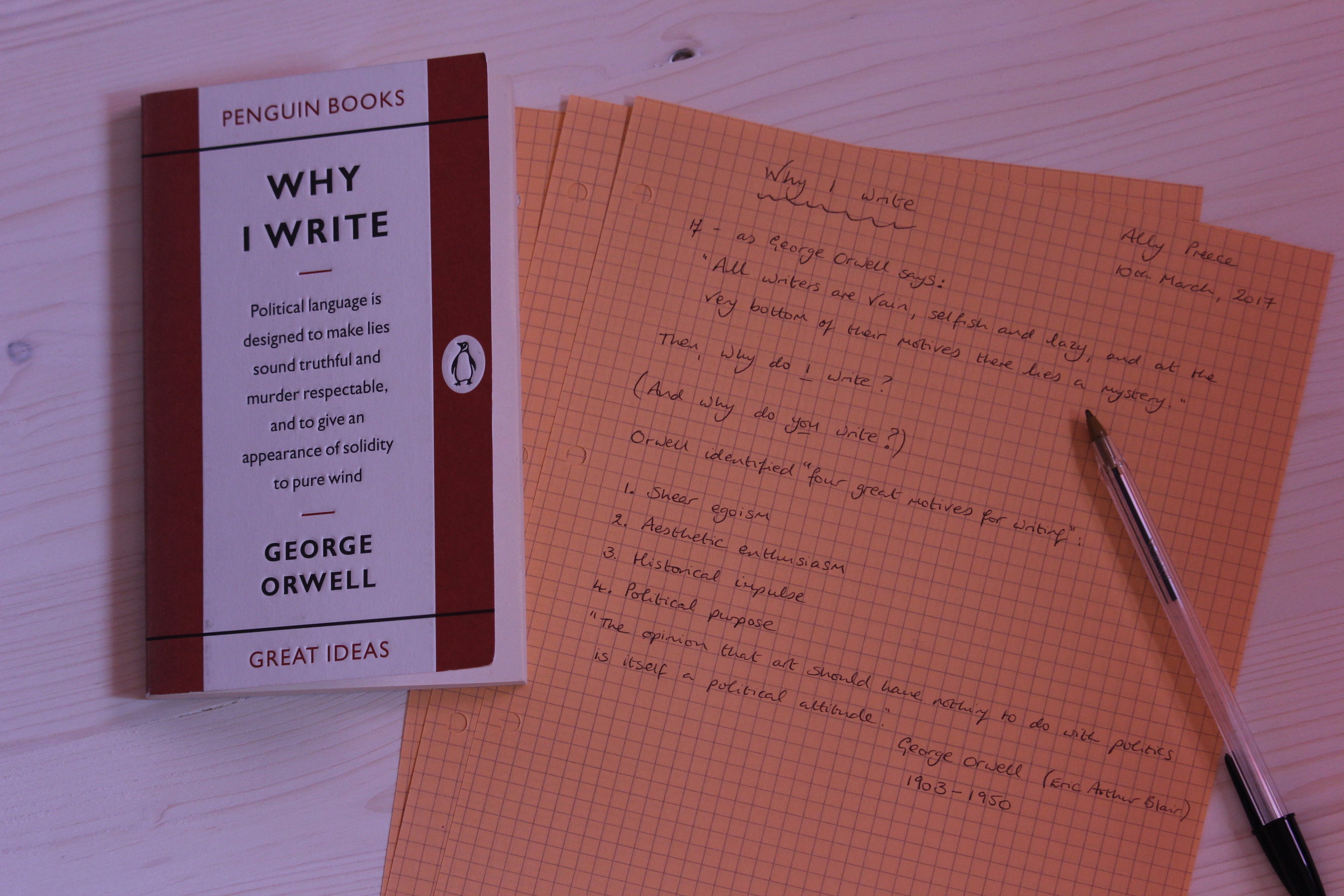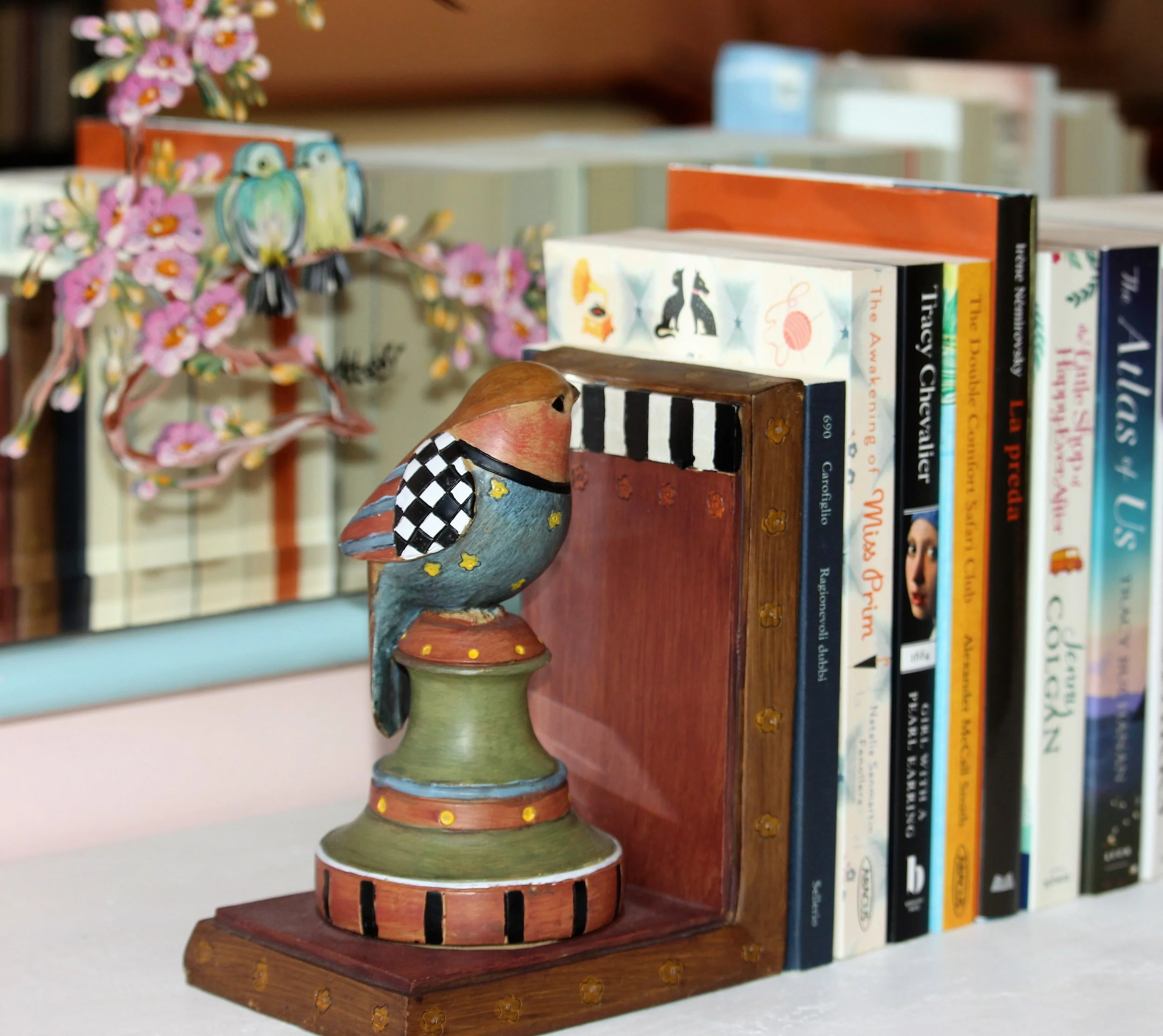What motivates you to pursue your dreams? Unlocking the mystery of why writers write.
Unlocking the mystery of why writers write. Four great motives for writing
George Orwell says that: ‘All writers are vain, selfish and lazy, and at the very bottom of their motives there lies a mystery’.
If that is true, then why do I write? And if you are a writer, what makes you write?
First, I must say it doesn’t feel lazy to write! Lying on the sofa reading a good book would feel a great deal lazier. Zooming around the house with a hoover (while more unpleasant and physically demanding) would be a great deal lazier once we count the mental, emotional and spiritual exertion of writing.
I think if I were truly lazy, I would not write, except for my personal journals. And certainly, I would not write novels, nor for publication.
What about you?
Seeking inspiration on a Monday morning isn't that easy
If you write, whether you regard yourself as vain, selfish and lazy or not, at some stage you must have overcome the internal barrier that stopped you acknowledging yourself as a writer. If you are still unsure about this, Jeff Goins’ short paperback, You Are a Writer (So Start ACTING Like One) will set you on a more practical path and is very helpful to read.
Let’s assume that by now, you know you’ve got something to say, a story to tell. You intend to craft it into words: that is your gift. You want to write. On some level, you need to write. You love words and stringing them together. Writing helps you discover the sense of things as you seek and formulate the meaning you want to convey.
You may have reimagined your life to devote precious time and energy, imagination and thought, to writing. If not, this is something you need to do. Because you feel drawn and compelled to write. And you are in no doubt at all by this stage that writing takes time and is hard work.
At the bottom of our motives, as Orwell says, there lies a mystery; to write, you must be ‘driven on by some demon’ you can neither resist nor understand. It is something you have to do.
Artists traditionally required patrons. Today, they are likely to require day jobs. The urge to write what we personally feel inspired or driven to create – whether or not it qualifies as art – is strong enough to overcome even daunting practical obstacles.
Discovering the mystery in the road that lies ahead
Four great motives for writing
In Why I Write, first published in 1946, George Orwell identifies four great motives for writing. He says they exist in varying proportions in each writer at any given time.
Which of the four motives resonate most strongly with you?
- Egoism. Writers, says Orwell, belong in the class of ‘gifted, wilful people who are determined to live their own lives to the end’. The desire to seem clever, to be talked about and remembered after your death, is a strong motive of writers – whether they admit it or not.
- Aesthetic enthusiasm. Orwell says no book above the level of a railway guide is free from aesthetic considerations. This motive ranges from the perception of beauty in the world, or ‘in the firmness of good prose or the rhythm of a good story’, to a writer’s desire to share with others an experience he feels is valuable.
- Historical impulse. This is the desire to record things ‘as they are’ and to set down true facts for posterity.
- Political purpose. Using political in the broadest sense, it includes the desire ‘to push the world in a certain direction’ and he claims that no book is genuinely free from political bias.
It’s interesting to use these motives to better understand our own reasons for writing.
I think for me the aesthetic motive resonates most strongly: my love of the beauty and power of language; a desire to share insights I have learnt through experience in life; an impulse to set down a small, personal statement: all this is real, love is real, the bonds of friendship and family are real. Perhaps being a writer is an attempt to understand the journey of life, to plot the course, to get to decide The End – if not for ourselves, at least for the characters in our books!
“Writing a book is a horrible, exhausting struggle, like a long bout of some painful illness.”
I love that quote and I do see what he means. But I would change the adjective ‘horrible’, because I think it is a rather wonderful thing to be able to do. And, having faced both challenges, I would far rather struggle to write a book than to overcome illness. But the concept is clear. Writing a book, despite its romantic appeal, is a long, hard struggle and there must be some pretty compelling motives that make us do it. Harrison Young, author of The Daughters of Henry Wong and corporate banker by day, has said that the most rewarding thing about writing fiction is its sheer joy, its intense intellectual pleasure (in So You Want To Be A Writer podcast episode 160, with Valerie Khoo and Allison Tait). At its best, I would agree.
George Orwell's four great motives for writing in Why I Write
Living in a tumultuous, revolutionary age
Of course, it’s easy to think of Orwell as a politically motivated writer. But this, he says, would have been the weakest of his motives, had he not lived in ‘a tumultuous, revolutionary age’: his lifetime spanned the years 1903 to 1950.
He came to believe that writing with no political purpose would be pointless. He also accused himself of producing his worst prose when his writing lacked political purpose: purple passages ‘and humbug generally’. Certainly, his legacy to humanity in 1984 grows ever more astounding in its vision and prescience as the decades lurch forward.
Orwell’s views on political purpose set me thinking.
While I was writing my first novel, A Case of Conviction, Orwell’s reasoning convinced me to change my approach to one of the themes in the story. Aware that I musn’t moralise in my story-telling, I had first attempted to repress my personal views on the death penalty. Instead, reflecting on Orwell’s words, I found a way to work my reasons naturally into the narrative, through the point of view of one of the characters, an idealistic journalist called Joe Jackson, in an interview with a crusading judge. I have tried not to be preachy, but the belief that the death penalty is cruel and unacceptable in all circumstances (a view Joe and I share with Amnesty International) is there for readers to come across and reflect on.
I wonder if, like me, you are starting to believe that we, too, live in a tumultuous, revolutionary age. As I write my second contemporary novel, Catch Me in Your Dreams, set in northern Italy and Sicily, I may be able to ignore the threat posed to liberty and equality by Trump’s election as US President (or maybe not). But I can’t ignore another issue only too close to my heart: the Brexit debacle. How could Britain’s withdrawal from the European Union not have an impact on my English heroine who has made her home in Italy, on her family and all the other travellers she meets? Likewise, the drama of migrants in the Mediterranean and the impact and urgency of climate change will find their way into the fabric of plot and character. My novel is a romance, but the characters do not live in a glass bubble and neither do I.
Orwell is right, of course: as writers, we can’t help being political. It’s all part of the story.
“The opinion that art should have nothing to do with politics is itself a political attitude.”
I would love to hear your thoughts, so do contact me if you have enjoyed this post. Which of Orwell’s four great motives makes you want to write the most?
How are you affected – as a writer or a reader – by political purpose?
If you'd like to join me on my writer’s journey, please subscribe for updates and additional content.
Copyright © 2017, Ally Preece




